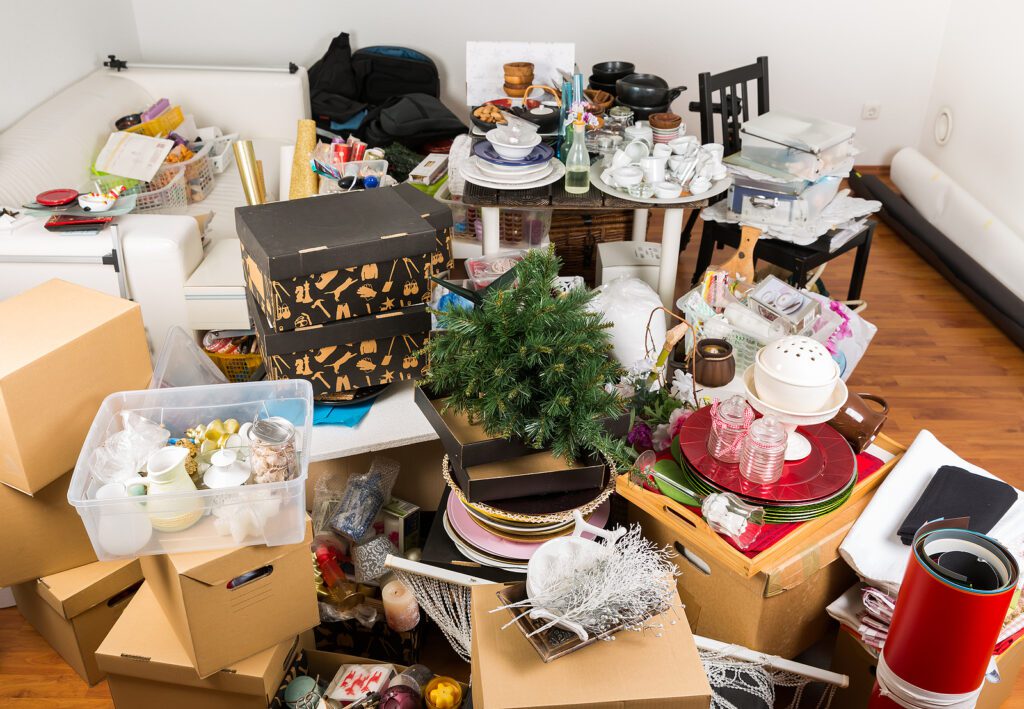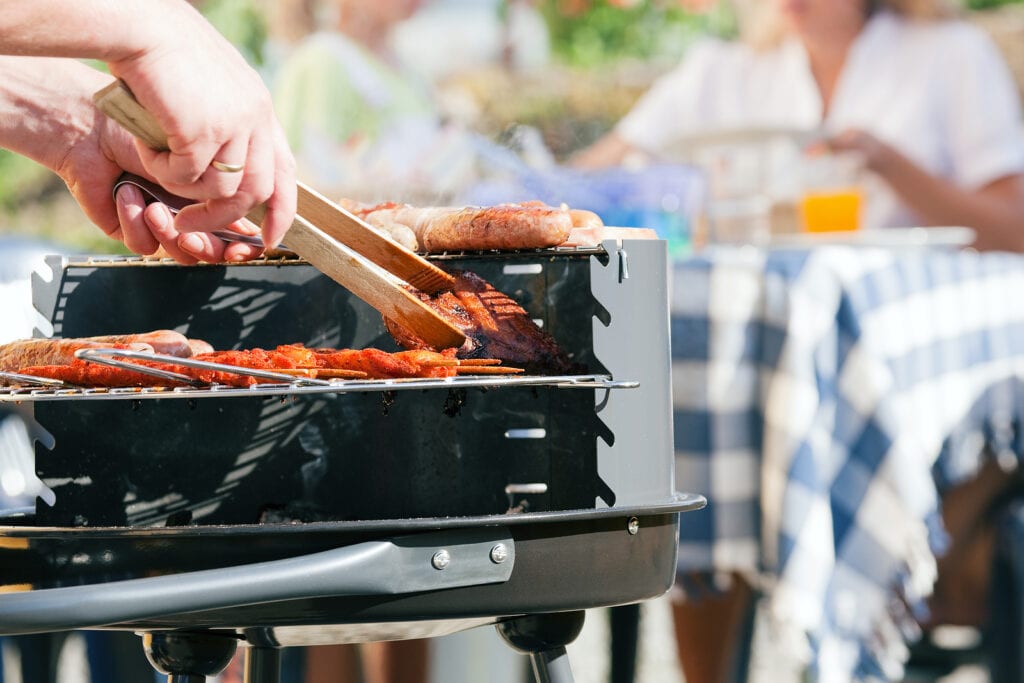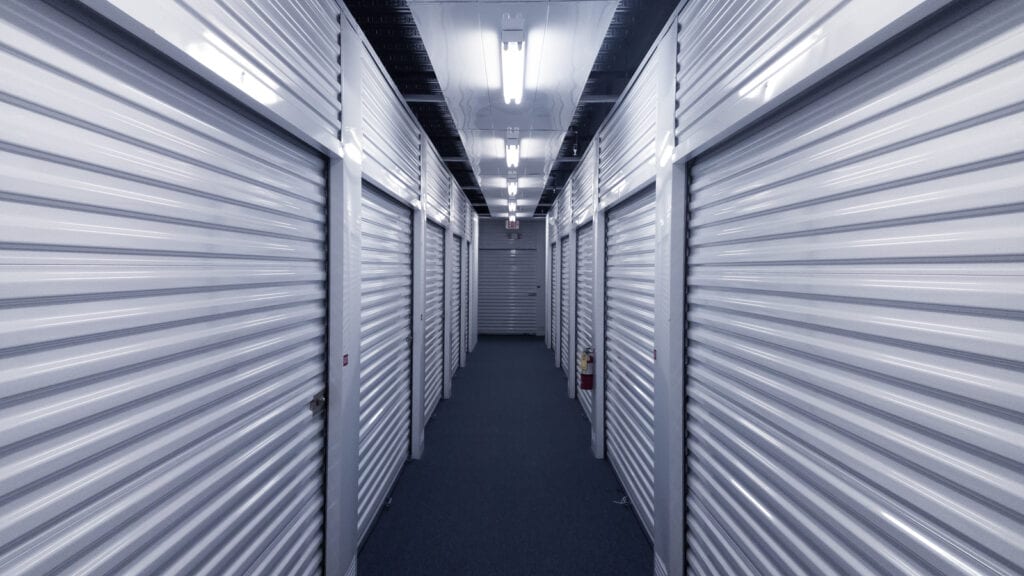Why Your Kids Don’t Want Your Stuff

After over a decade of providing downsizing and transition coaching services to seniors and their families, I’ve noticed one of the biggest challenges that tends to frustrate them the most is what to do with the things they can’t take with them to their new home.
Most automatically assume that their adult children will want many of the precious items that they’ve lovingly acquired from previous generations and accrued throughout their own life.
But, the uncomfortable reality is that your kids don’t want your stuff.
It used to be that children expected, as a rite of passage, to have their mother pass down her china, silver and crystal sets to her kids to carry on the formal entertainment traditions with their own families.
But times have changed.
I remember my own mother, who downsized three times in her 80’s, meticulously planning the handover of those items to me plus other treasured family pieces of furniture, artwork, beautiful linens and kitchenware.

It wasn’t that I didn’t value or appreciate the beautiful things she had gathered over time, because I did. I have many fond memories of planning family holiday tables together or re-living the stories associated with this item or that.
I also counted myself lucky! My Mom and I loved many of the same types of things and had common interests, so there were many things that I did end up accepting from her that I cherish to this day.
But, this isn’t the case for everyone.
One of the reasons your kids might not want your stuff is because they don’t share the same interests or esthetic taste as you do. It’s not that it’s good or bad, it’s just different.
Another reason your kids might not want your stuff is that it often comes down to not having the space to be able to store items, even if they really do want or need items being offered.
I had neither the space, or the need, for many of the items my Mom wanted to share with me because I had already accrued 50-some-odd years of my own “stuff” by that time.
In addition, over the years, I had given up formal entertaining, preferring instead to have smaller, more informal get togethers’ like BBQ’s or a few friends for a casual dinner.

Turns out, I’m not alone.
In her book “No Thanks Mom: The Top Ten Objects Your Kids Do NOT Want (and What to Do with Them)”, author Elizabeth Stewart says Baby Boomers and Millennials “…want a clean, clear field to live their lives. Your grown children will not agree to be the recipients of your downsizing if it means their upsizing.”
Depending on the way it’s approached, telling a parent you don’t want any of the items, or just a few, can result in a lot of unnecessary hurt and upset by the parent when they find out the gift of Aunt Millie’s precious rocker has been rejected.
In situations like this, it’s critical to step back and take a breath before you automatically decline. Instead, approach it with every inch of tact and loving compassion you have.
Think of how you’d feel if you were in their shoes.
Our parents are often excited and proud of being able to pass on items they sacrificed and saved to purchase or received from their parents, grandparents and beyond. No one likes to think about their treasured legacy not being appreciated or unwanted by those they love.
It’s for this reason that many family members that I’ve worked with, who were in their 50’s and 60’s, have told me that after seeing firsthand the painful and overwhelming emotions their parents experienced while downsizing late in life, they were now convinced they needed to downsize much earlier than they had originally planned.

They simply didn’t want their own children to go through what they had just gone through with their own parents.
When a client finally realizes that Plan A (gift to Family) isn’t a reality, panic will often set in because they are now faced with having to make the hard decisions of what to do with the items they can’t take with them.
That’s when Plan B starts to take form.
What’s Plan B? Unfortunately, it’s not that they face reality and part with the items by selling them or donating them.
It’s the tendency to put off making those decisions at all by packing it all up and storing it until “it can be gone through” at some future date.

This is VERY bad idea.
Trust me, based on both personal and professional experience, this only lengthens the painful process of decision making instead of releasing the stress of managing items that no longer serve you.
I learned through personal experience with my own family, that the “future date” doesn’t usually happen for years, if at all, or until a person has passed and then the family is tasked with going through it, often when they are still fresh in their grief.
Unless their parent had previously shared the emotional value behind an item, they may also miss out on knowing the unique history and true meaning that might change their minds about keeping it for future generations.
Storing items, especially if the unit isn’t climate controlled in wet or extremely hot conditions, are often ruined and completely unusable when left unattended for months or years.
Unfortunately, my mother chose this route. 10 years and $16,000 in storage fees later, we found nothing was usable. Because her storage unit was located in a desert environment, and not climate controlled, it all had to be thrown out.

I consider that more wasteful than selling or donating items to people who not only want them, but truly need and appreciate them.
The point to this story is, that in all that time, she never once missed or needed a single item that was stored, because by the end of the 10 years, she had completely forgotten what she had put in there in the first place.
Her quality of life was happy and unaffected by the missing items and, because they were out of sight, they quickly were out of mind.
So, even when a person is committed to downsizing to a more manageable home and welcomes the benefits it brings, the hardest hurdle to overcome is often our own mindset.
For those of you reading this who are saying “She doesn’t understand because she hasn’t had to personally get rid of anything”, I understand very well what it’s like to let go of things that have meant a great deal to me, because I’ve downsized myself – twice!
Simply put, we defeat the purpose of striving for a healthy and balanced life when we let our “stuff” rule our emotions.
Many worry that their family member would be upset if they knew they had given an item away. If this is a concern to you, take a moment and consider their original intent. Your loved ones would never have intended gifting items to us if the result was to create stress or a sense of overwhelm, right?
We can maintain the memories of our loved ones without them being attached to things we can’t use, have no room for or that require more management or cost than is reasonable.
Instead, pick a few, or as many of, the most important items that bring warmth, comfort and joy to you to remember your loved one.

I believe that letting go of the rest, when you need to, is a sign of strength and respect for the legacy our loved ones inspired in us, not disrespectful or ungraciousness.
Tackling these kinds of decisions is where a senior downsizing specialist can really shine in helping their clients evaluate their options, showing them the plusses and minus aspects of each, and/or providing guidance to their families about how to approach a parent on the topic of gifting unwanted items.
To learn more about starting your own senior downsizing business, go to https://www.thedownsizinginstitute.com/is-this-right-for-you/.
